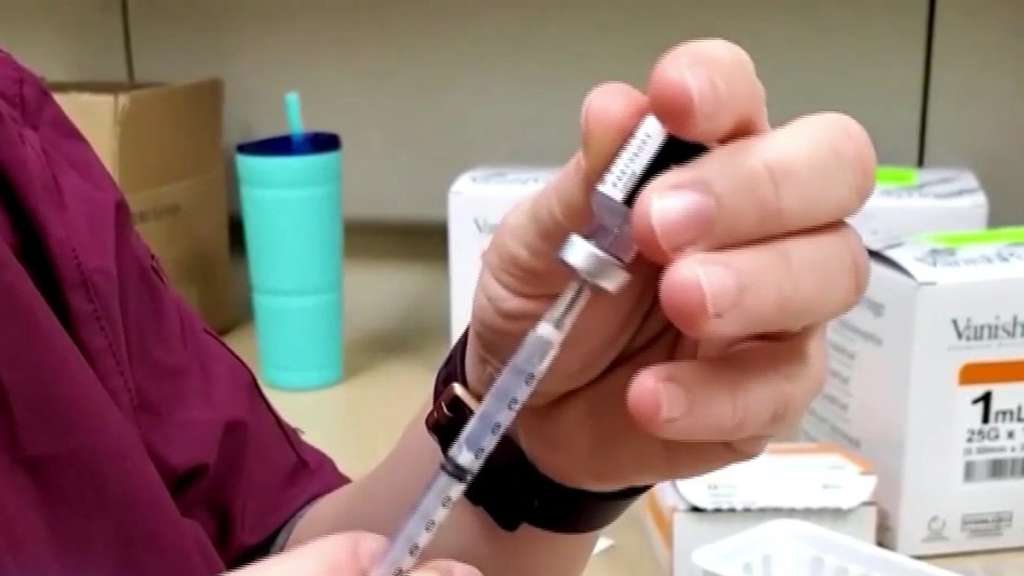An influential government advisory panel is considering COVID-19 boosters for younger teens, as the U.S. battles the omicron surge and schools struggle with how to restart classes amid the spike.
Boosters already are recommended for everyone 16 and older. Earlier this week, the Food and Drug Administration authorized an extra Pfizer shot for kids ages 12 to 15 as well — but that wasn’t the final hurdle.
The Centers for Disease Control and Prevention makes recommendations for vaccinations and its advisers on Wednesday are debating whether younger teens should get one as soon as they’re eligible or if it’s just an option for those who want it. The CDC’s director, Dr. Rochelle Walensky, will weigh the panel’s advice before making a final decision soon.
Vaccines still offer strong protection against serious illness from any type of COVID-19, including the highly contagious omicron variant, especially after a booster. But omicron can slip past a layer of the vaccines’ protection to cause breakthrough infections. Studies show a booster dose at least temporarily revs up virus-fighting antibodies to levels that offer the best chance at avoiding symptomatic infection, even from omicron.
The vaccine made by Pfizer and its partner BioNTech is the only option for American children of any age. About 13.5 million children ages 12 to 17 have received two Pfizer shots, according to the CDC. Boosters were opened to the 16- and 17-year-olds last month.
If the CDC agrees, about 5 million of the younger teens, those 12 to 15, would be eligible for a booster right away because they got their last shot at least five months ago.
New U.S. guidelines say anyone who received two Pfizer vaccinations and is eligible for a booster can get it five months after their last shot, rather than the six months previously recommended.
Children tend to suffer less serious illness from COVID-19 than adults. But child hospitalizations are rising during the omicron wave — most of them unvaccinated.
The FDA decided a booster dose was as safe for the younger teens as the older ones based largely on data from 6,300 12- to 15-year-olds in Israel who got a Pfizer booster five months after their second dose.
The chief safety question for adolescents is a rare side effect called myocarditis, a type of heart inflammation seen mostly in younger men and teen boys who get either the Pfizer or Moderna vaccines. The vast majority of cases are mild — far milder than the heart inflammation COVID-19 can cause — and they seem to peak in older teens, those 16 and 17.
Earlier this week, FDA vaccine chief Dr. Peter Marks said the side effect occurs in about 1 in 10,000 men and boys ages 16 to 30 after their second shot. But he said a third dose appears less risky, by about a third, probably because more time has passed before the booster than between the first two shots.
(Copyright (c) 2024 The Associated Press. All Rights Reserved. This material may not be published, broadcast, rewritten, or redistributed.)

